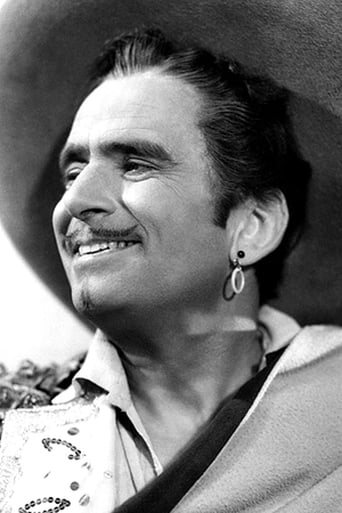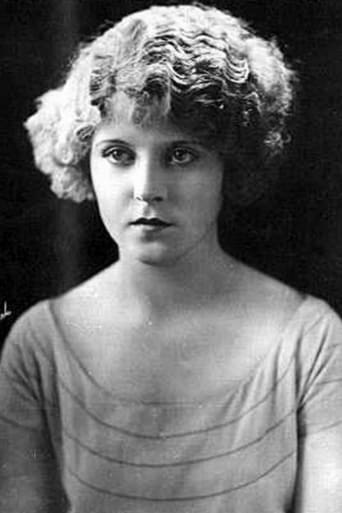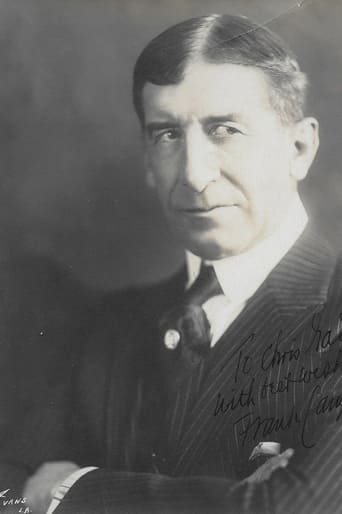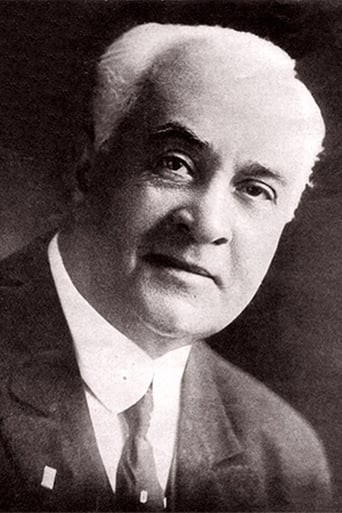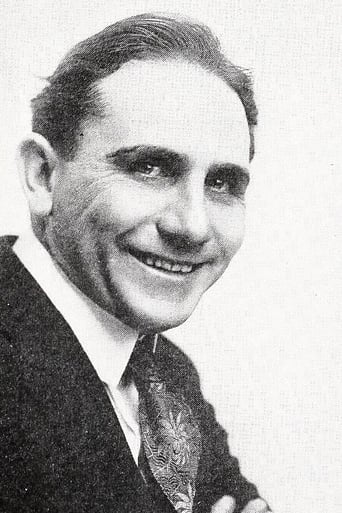ScoobyWell
Great visuals, story delivers no surprises
KnotStronger
This is a must-see and one of the best documentaries - and films - of this year.
Lucia Ayala
It's simply great fun, a winsome film and an occasionally over-the-top luxury fantasy that never flags.
Payno
I think this is a new genre that they're all sort of working their way through it and haven't got all the kinks worked out yet but it's a genre that works for me.
JohnHowardReid
Another Douglas Fairbanks offering from Grapevine is The Man from Painted Post (1917), a far more important film but unfortunately available only in a black-and-white print that varies from acceptable to poor. It's a western with Fairbanks cleverly playing a "pretend" novice. He's actually a detective seeking the killer of his sister, a thug named "30-30 Smith". As usual, Fairbanks does his own stunts (of which there are many), as well as romancing attractive heroine Irene Percy, outwitting villain Frank Campeau and "adopting" his kid, Frank Clark. The main reason to make this film a must-see is not the neat acting or the fast-paced story or the neat bits of comedy or even the competence of Joseph Henabery's direction. The great attraction is Victor Fleming's superlative photography. Starting off with a 360-degree pan, Fleming not only presents his arid locations most effectively, but lights his studio interiors in full film-noir style with high contrast faces against black-as-midnight backgrounds. Oddly, Fleming is not credited for his great photography. Fairbanks Junior told me that Fleming did not want to be credited because at that time he wanted to switch from photography to direction - and he soon did just that! But this wasn't the first time Fleming had tried to make this switch. For example, Fleming also photographed Doug's The Habit of Happiness (1916).
binapiraeus
Because of the HUGE fame Douglas Fairbanks achieved a few years later as the initiator and first and best hero of the great swashbuckler genre, it's often being overlooked that, during the first years of his movie career, his specialty were comedies and westerns - or a mixture of both (like "Wild and Woolly")... Now, "The Man from Painted Post" is generally a serious western (although, of course, Doug can't resist throwing in a joke once in a while, nor romancing with pretty Eileen Percy, nor showing his terrific athletic skills...); and it shows us, first that Doug Fairbanks also played quite an important role in the development of the archetypal western movie hero, and then it depicts the West in a more 'genuine' way than the famous later talkie westerns of the 'classic' era, because it was made at a time when the days of the REAL 'Wild West' hadn't passed for so long yet...And its subject is one of those that REALLY had been one of the most important ones for the cattle owners of the Old West: the problem of the cattle thieves. It's set in Wyoming, where the local cattle owners call on the help of a renowned detective, because their stock is constantly being reduced by 'rustlers'; and the detective, 'Fancy Jim Sherwood', the man from Painted Post, is of course Doug Fairbanks! But in order to be able to get to the bottom of things more easily, he disguises himself as an unexperienced Easterner - because none of the cowboys take him seriously, of course, when he arrives in a coach, dressed in a city suit and 'armed' with a set of golf clubs... He pretends he can neither ride nor shoot, and the thieves laugh up their sleeves - until 'Fancy Jim' shows his REAL self...The patterns in this early western are still pretty simple: the good, brave hero, the frightened heroine he's got to rescue - and a REAL bad 'baddie' that's so mean that he mistreats his squaw (who 'doesn't count anyway', as he assures the pretty young teacher he's after) as well as his child; but of course, our hero is gonna fix him and get the girl in the end! A simple 'recipe' alright, but no wonder, since the genre at that time was just a little more than 10 years old - and besides that, we can find that very same 'recipe' in innumerable western movies throughout ALL later film eras... So this early example certainly is of BIG interest for fans of the genre; and, needless to say, for fans of Douglas Fairbanks!
Cineanalyst
This is a good Douglas Fairbanks Western. Reportedly, Fairbanks was a Western history aficionado, and he made a few Westerns in between his generally more eastern-based comedies of the 1910s and before his transition to swashbucklers in the 1920s. This film "The Man from Painted Post" and "Wild and Woolly" (1917) are the only two I've seen, but he also starred in "The Good Bad Man", "The Half-Breed" (both 1916), "Headin' South" (1918) and "The Knickerbocker Buckaroo" (1919). "Wild and Woolly" is more comedy than western, and it pokes fun at the protagonist's romanticizing of the West; "The Man from Painted Post", however, is a more traditional Western, although it includes some of Doug's characteristic sense of humor and smooth athletic stunts.Regardless, this film is somewhat darker and more dramatic than the other available early films of Fairbanks—and there's more exposition than usual for this star's vehicles and a few unnecessary long explanatory title cards. At the beginning, we're shown a flashback of our protagonist's sister being gunned down and dying in his arms, which explains his contemporary employment as a "detective" for cattle ranchers—that is, a good hired gunman who fights off cattle rustlers, which just seems to be his way of seeking revenge or justice. Yet, Doug plays much of the film with his typical smile and wit, so the result is a somewhat underdeveloped western dramedy. To complicate matters, there's also a love interest for Doug, as usual. Additionally, 'Bull' Madden, played by Frank Campeau, is appropriately an especially detestable villain, who we see abusing his wife, attempting to force himself onto another woman, and pushing a child around, in addition to drinking, cattle rustling and generally endangering others' lives and well-being.(Note: I saw a rather poor, dark reduction print/video transfer, which included a few intertitles that were nearly illegible. Consequently, the photography of Wyoming's landscape didn't register very well, although some of the shots, such as the final cloudy horizon view remain lovely.)
boblipton
This is a surprisingly flat early offering from Doug Fairbanks. Although he displays flashes of his usual athleticism -- climbing rock walls and doing a little trick riding, as well as a bit of clowning when he pretends not to be able to ride a horse, so for fans of this aspect of early Doug, it is amusing -- there isn't enough to fill out the entire feature.All in all, this is a fairly straightforward western, with the chief cattle rustler making a play for the pretty schoolmarm. Far too much of the story is told by use of titles and there is only one or two flashes of wit in them. It is of interest primarily for die-hard Fairbanks fans.
